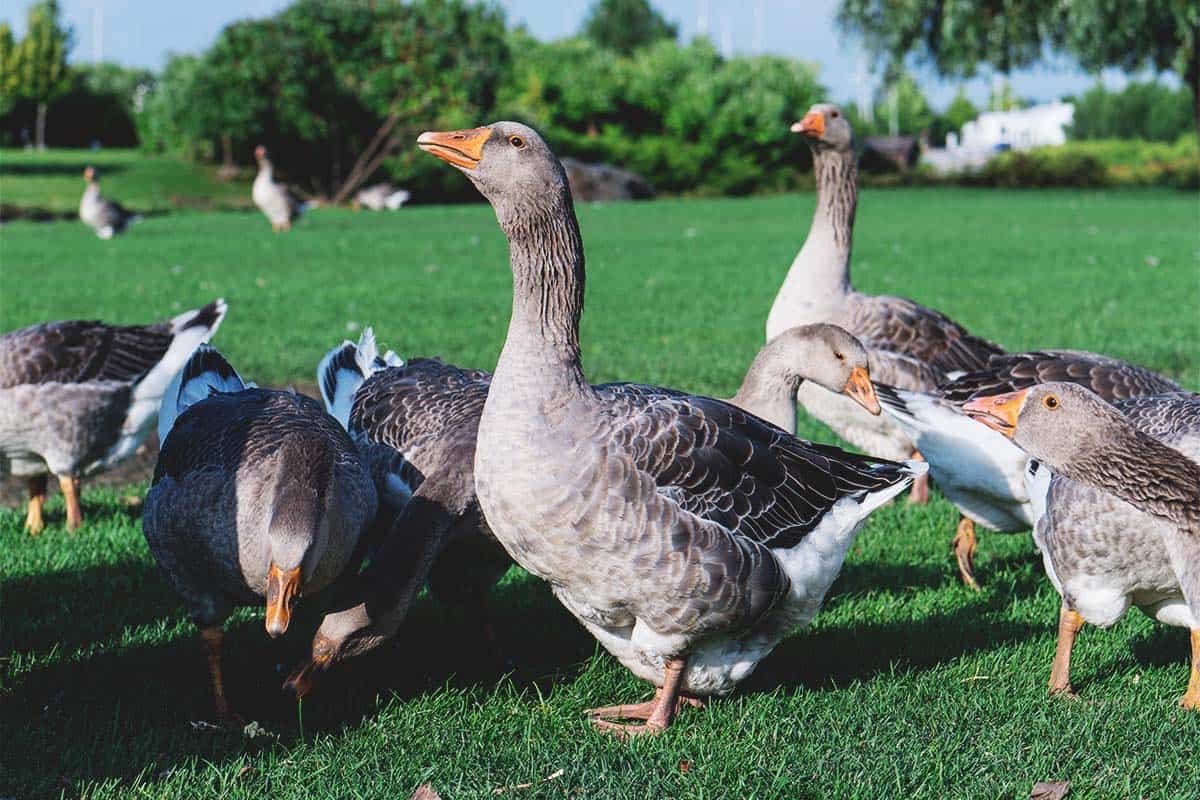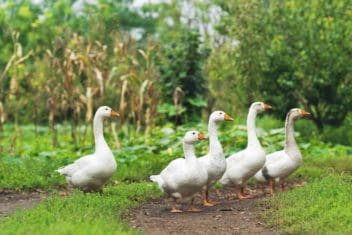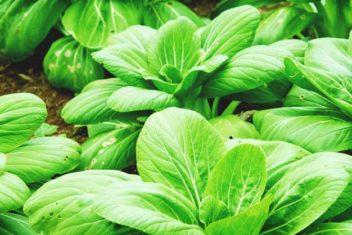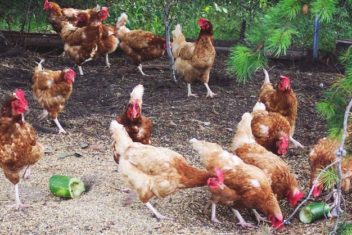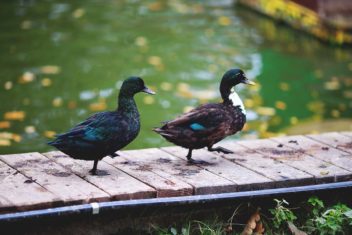It seems as though just about every homestead in the country has a few chickens – or perhaps more than just a few – running around.
Sure, chickens are great – but if you’re interested in trying out a new breed of poultry for your backyard farm, the goose is an option you might want to consider next.
Why? Because there are so many great reasons for keeping geese. They are great at foraging and exceptionally friendly (despite their bad rap for being a bit cranky!). Geese are productive and beneficial additions to a farm.
However, they do present their own challenges, so it’s important that you familiarize yourself with their unique requirements and characteristics before you jump right in.
Raising geese is not difficult – but there are some things you need to consider. Here’s what you should know about raising geese.
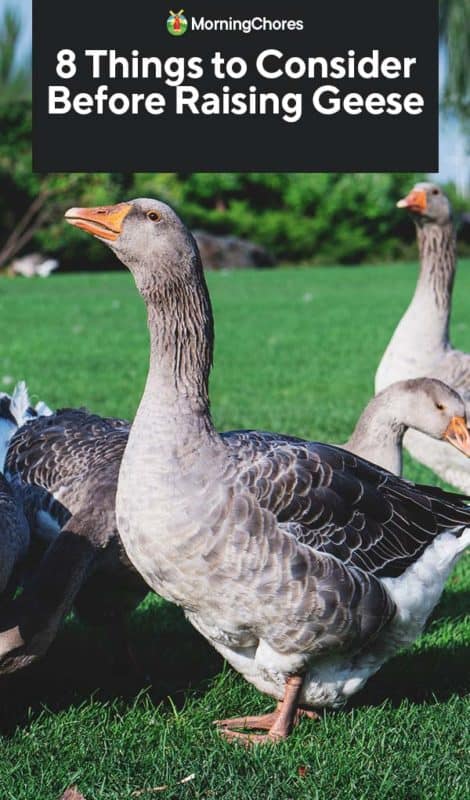
Excellent Reasons for Raising Geese
1. Delicious Eggs and Meat
Goose eggs are absolutely delicious. They’re perfect for cooking, with yolks that are large, rich, and dense. The eggs have runny whites that are delicious in custards and waffles.
The meat, too, is something to write home about. It tastes more like beef than it does chicken, possessing a succulent, tender flavor that is much easier to produce than beef on a small scale.
2. Geese Are Good Watchdogs
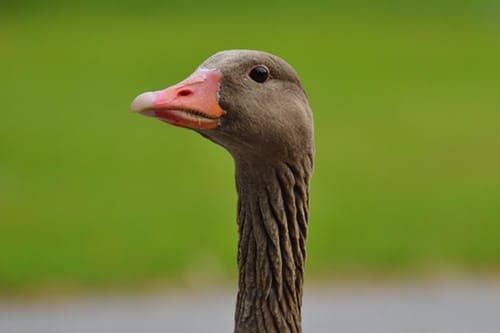
Did you know that a goose is an excellent watchdog?
Their territorial personalities make them the perfect species for safeguarding your other poultry – like chickens.
The humble goose actually has a somewhat negative reputation for being ornery and downright unpleasant to deal with. There is some truth to that. Geese can be protective over their territory, and they don’t back down easily from a threat. This is a unique characteristic of the goose, especially when it is compared to other more docile poultry breeds like chickens or ducks.
However, don’t fool yourself into complacency here – geese do need some protection. They aren’t any kind of a match for a large predator like a fox, dog, or coyote. You will still need to invest in some secure fencing and housing to keep your geese protected.
3. They Do Not Need A Roost…
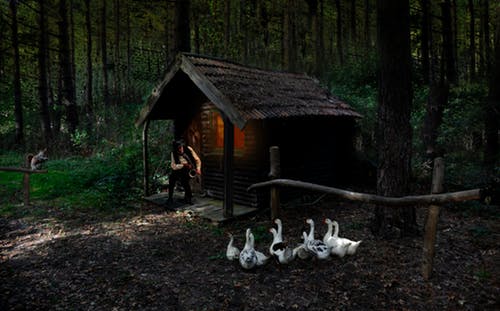
…but they do need some form of housing.
Geese are unique from other poultry species, like turkeys, guinea fowls, and of course, chickens, because they do not need to roost at night. They prefer to sleep low to the ground.
As long as you have housing that is sturdy and well-ventilated, geese are pretty self-sufficient. A single goose needs about three square feet of floor space. Geese aren’t designed for confinement, so they will require more space in the run than they do indoors.
For bedding, use something simple, like clean, dry straw. You will want to use some kind of latch on the exterior of the building to prevent predators like raccoons from getting inside.
Geese are very hardy, preferring to stay outside even during cold weather. As long as it’s daylight, they will hang out outdoors, grooming themselves even in a downpour or a blizzard. The goal of your housing for geese is really just to keep predators away from them. Geese have poor night vision and don’t do a great job of fending off attacks in the dark.
4. There Are Many Breeds to Consider
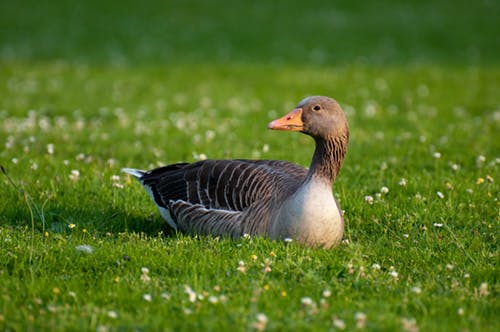
There are many breeds of geese for you to consider – and not all geese breeds are built alike! You need to consider your goals and set up when it comes to selecting the best breeds of geese for your backyard gaggle.
Some of the most popular geese breeds include Brown and White Chinese and Roman Tufted (all light breeds) as well as Pilgrim, Sebastopol, and American Buff (all considered medium breeds). As far as heavy breeds go, African, Toulouse, and Embden are some of your best.
Whatever you do, make sure you do your research to find the goose breed that is right for your homestead. Geese are incredibly smart and loyal, and they bond quickly to you and to each other. Some can live for up to 20 years – meaning investing in the right breed is an important choice.
5. Feeding Geese is Simple
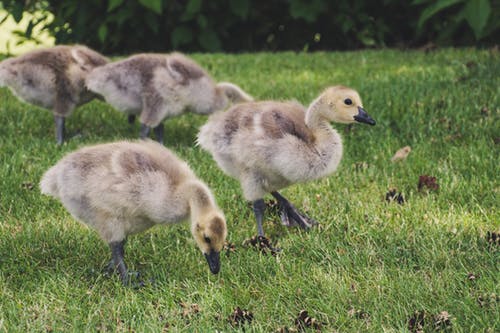
Geese eat grass – and that’s about it. If you want to raise healthy geese, all you need is plenty of clean, fresh pasture.
Geese are unlike chickens and ducks, who need to be fed high protein food, like bugs. Geese are grazers, which means their digestive systems are designed to convert grass into energy instead of protein. As a result, you will need to make sure they have access to plenty of grass.
Make sure the grass isn’t too long but also avoid grass that is too short. Generally, about three inches will suffice. Your geese will graze along, nibbling down the grass as they go. All the nutrition they need is there, meaning you don’t need to supplement with other vegetables or grain.
If pasture is at a premium where you live – or if you experience harsh winters where your geese won’t be able to get to the grass – you can supplement their diets. Geese can be fed poultry layer pellets, wheat, fresh greens, or cooked vegetables.
However, it should be noted that you will want to avoid feeding mash or layer crumbles to your geese. It makes it difficult for your geese to swallow, as it gets stuck in their upper bills.
If you feed wheat or any other type of grain, you should feed it in a bucket, submerged in water. This way, any unwanted foragers (like rats and mice) won’t be able to get to the grain. Your sheep will still be able to eat it, though.
Whatever you do, make sure your geese can’t get to any medicated poultry food (like the kind you feed to your chickens). Medicated poultry food is specifically formulated and dosed for those exact breeds, and it can easily become toxic to animals for whom it is not intended.
6. You Can Raise Geese With Other Poultry
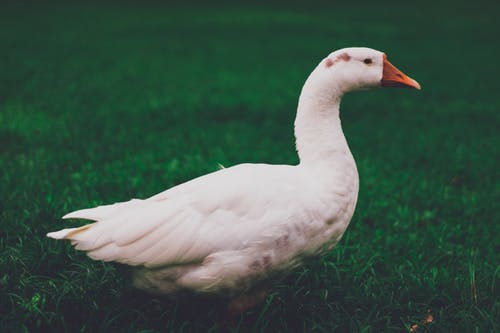
Geese can be raised with chickens and other waterfowl, but you do need to watch the individual flock dynamics within your specific group of animals. Each situation will be different.
The best advice is to raise all of your birds together starting at birth. If you start a group of goslings with a group of chickens, they will likely grow up acclimated to each other and there shouldn’t be too many issues. The goslings will likely stick to their own group, as will the chicks.
However, geese are considerably larger than just about every other type of poultry, especially chickens. You will want to watch out for aggression, particularly if you are keeping roosters or ganders.
7. A Pond is Not Mandatory, But Some Water is Required
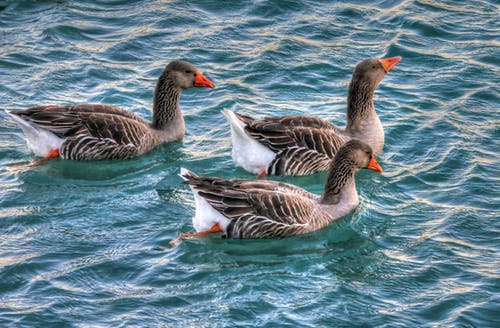
As with all livestock, geese need drinking water, but they also need some water for mating. Many people erroneously assume that geese are like ducks and need a great deal of water just for their daily functioning.
That’s not the case. While geese need – and drink – more water than chickens, they do not need water to the same extent that ducks do. However, if you plan on brooding your own goslings, you will need water for your breeding pair. Water makes the mating process easier for your breeding pair of geese, but know that they won’t spend as much time on the water as ducks will.
Geese are water birds by nature so they like a little bit of water to bathe in. However, you don’t need a full pond. A tiny kiddie pool is really all you need. Just make sure whatever you use cannot be easily spilled.
8. Hatching Goose Eggs is Easy
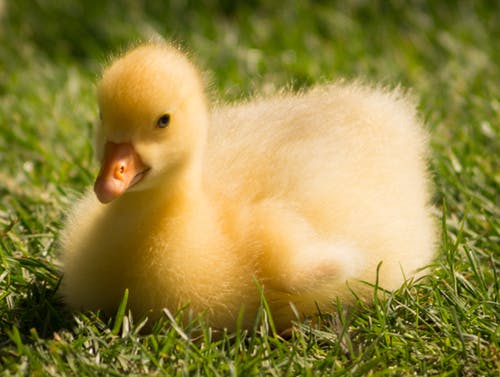
If you’ve hatched your own chicken eggs before, then hatching goose eggs is not much more difficult. The main thing to keep in mind is that goose eggs need more moisture to hatch than chicken eggs.
Chickens are land birds, while geese actually need to wet their feathers to keep their eggs adequately moist during incubation. Therefore, if you decide to hatch goose eggs, you will want to follow very specific parameters – and don’t try to hatch them alongside a batch of chicken eggs!
Is Raising Geese Right For You?
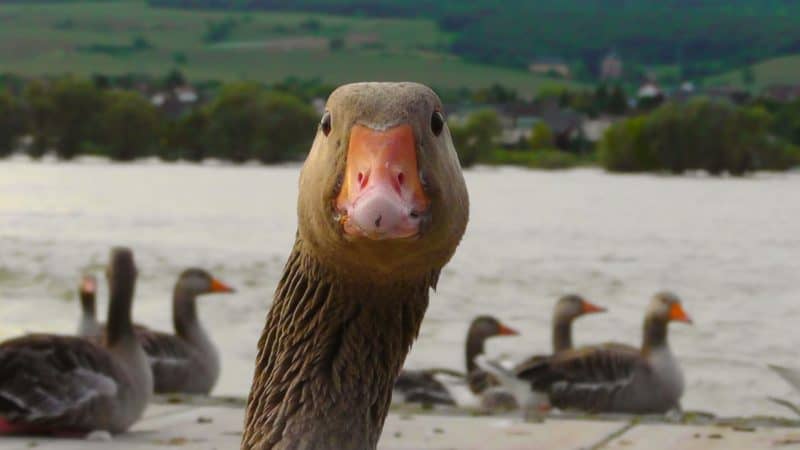
Most hatcheries that sell baby chicks also sell baby goslings. You can also find rare breeds at poultry shows as well as, occasionally, through breeders in your local areas. Many of the most popular hatcheries also sell hatching eggs if you want to try to hatch your own.
Geese aren’t as easy to come by as chickens, but they aren’t as rare as you might think either. Plus, they are surprisingly easy to raise. With a little bit of understanding as to the unique biology and behavior of a goose, you’ll be up and running with your own delightful gaggle in no time!
